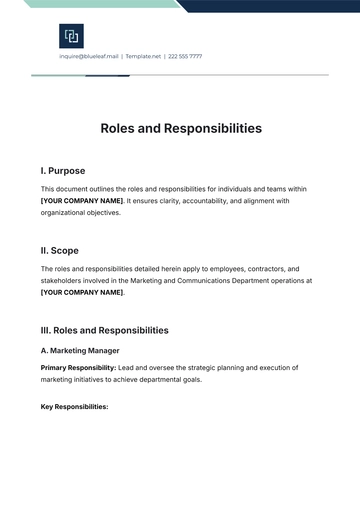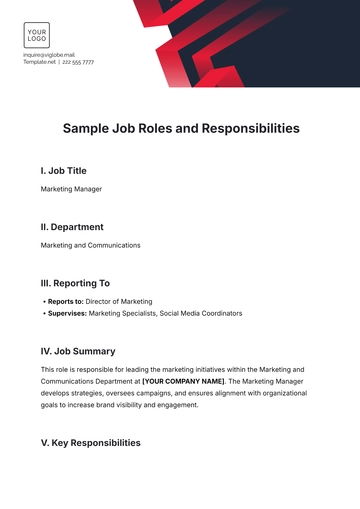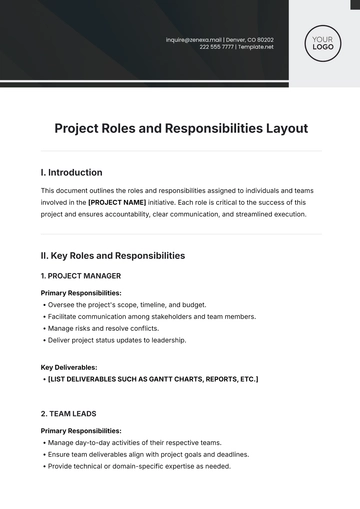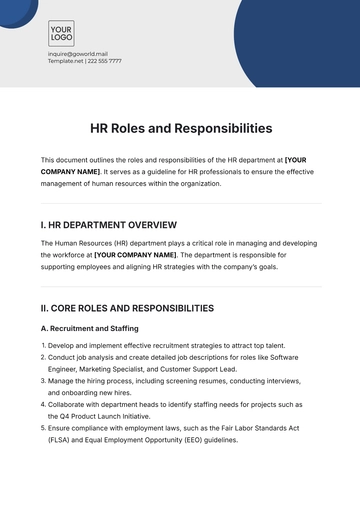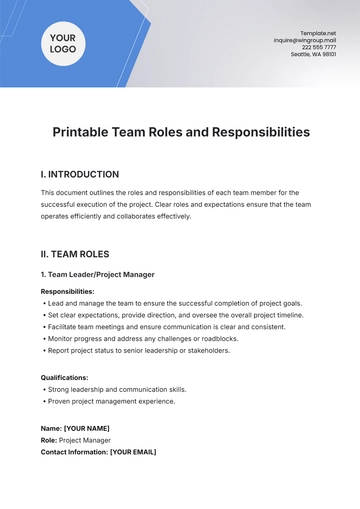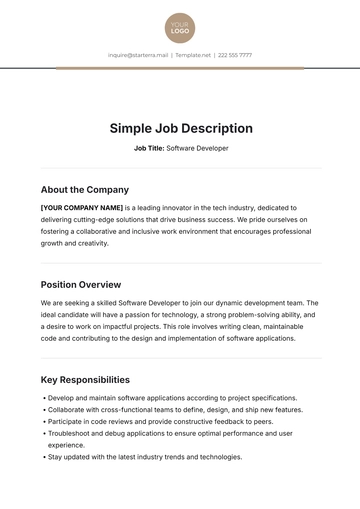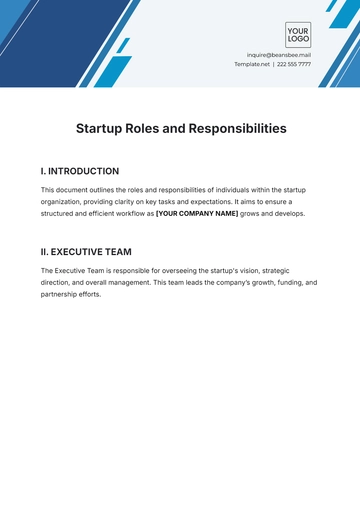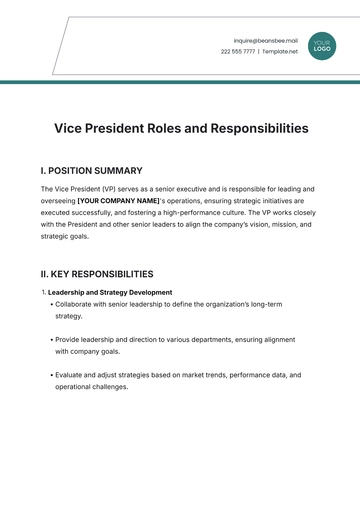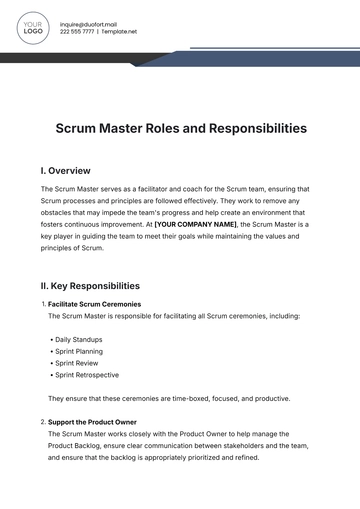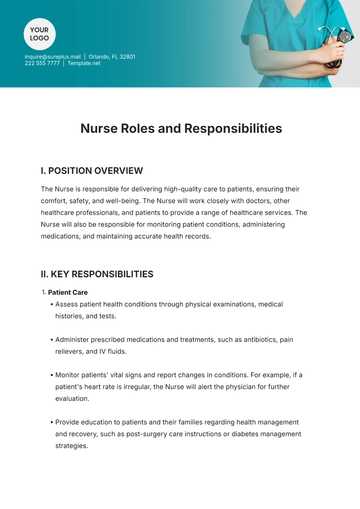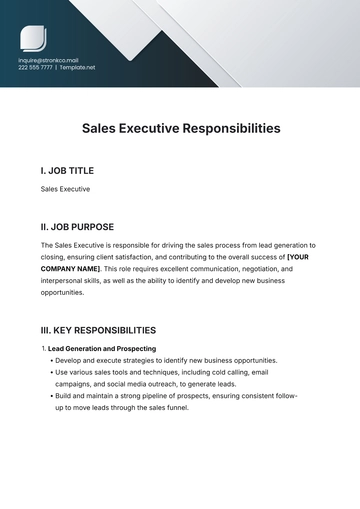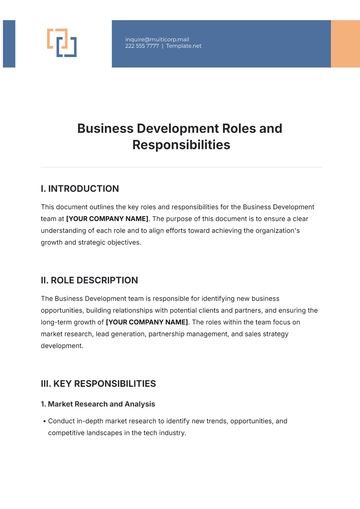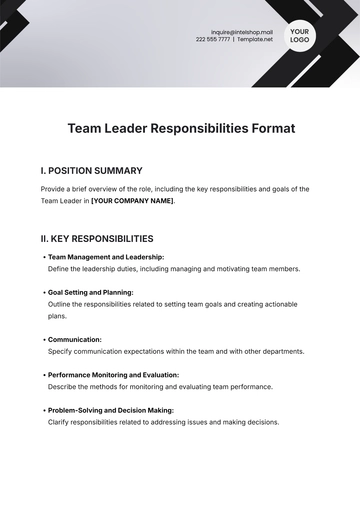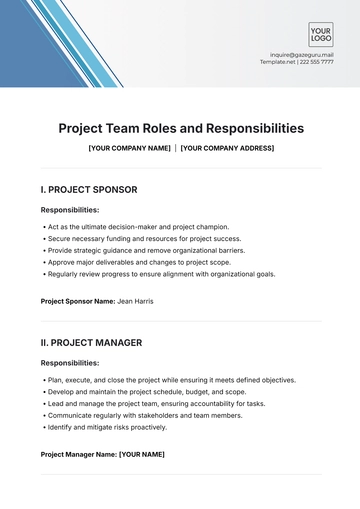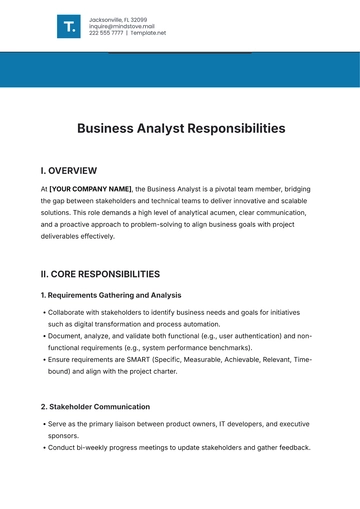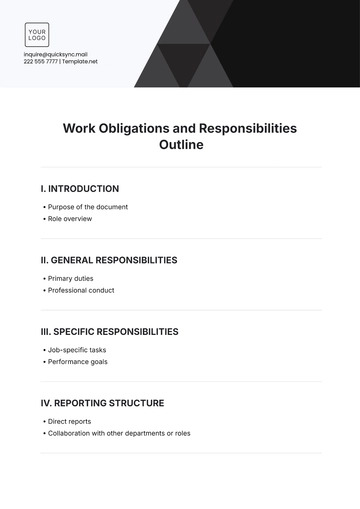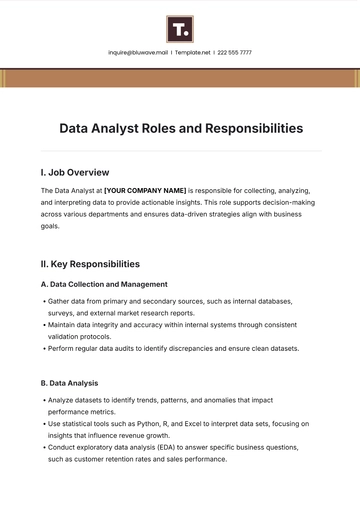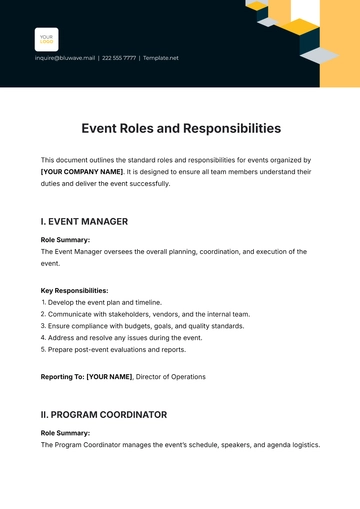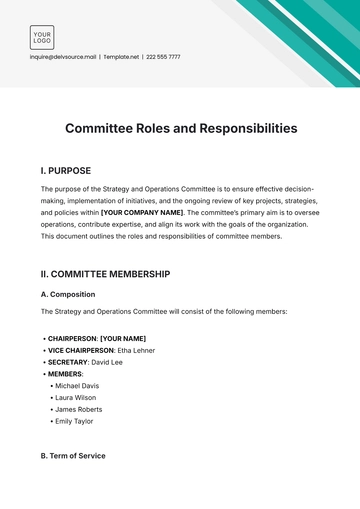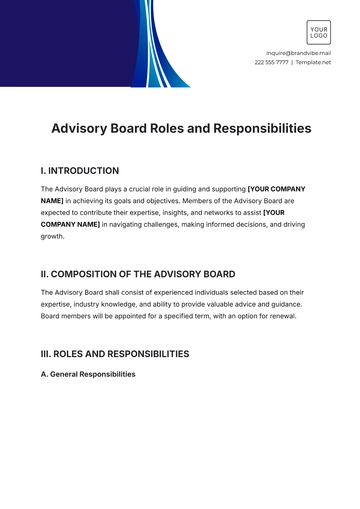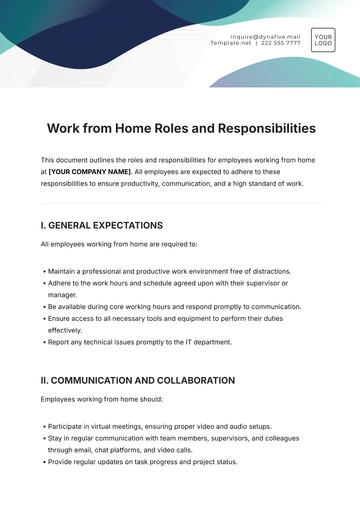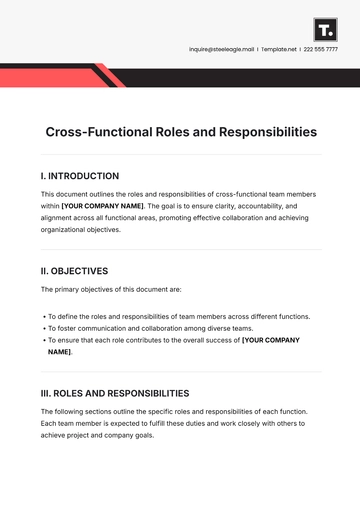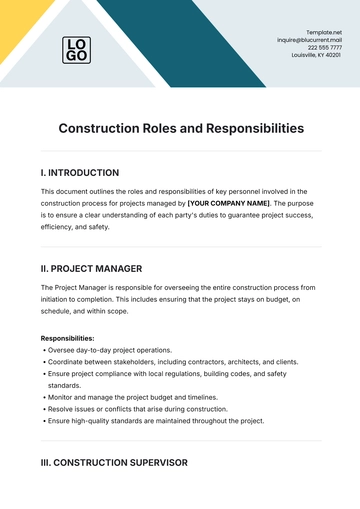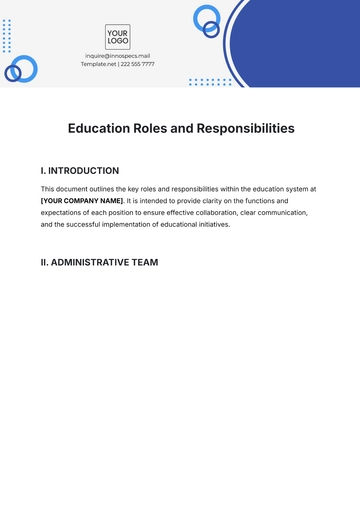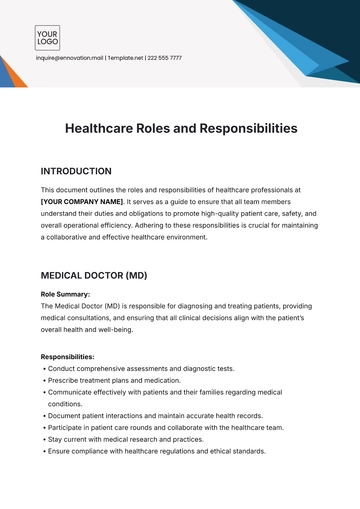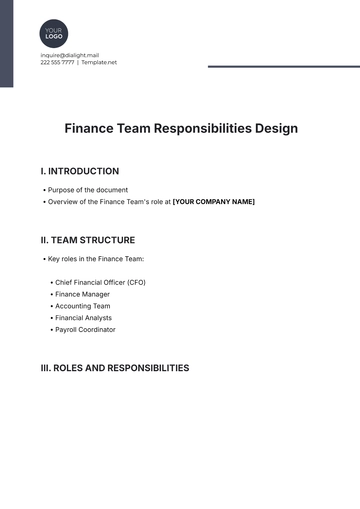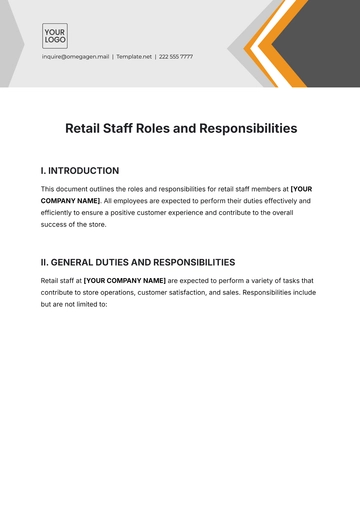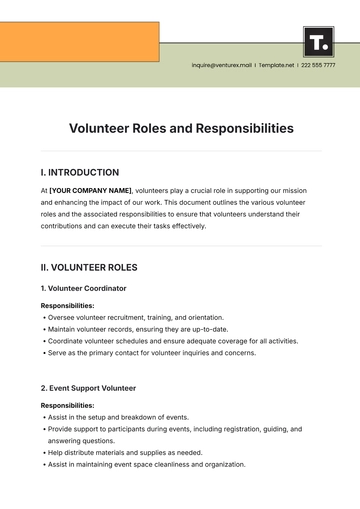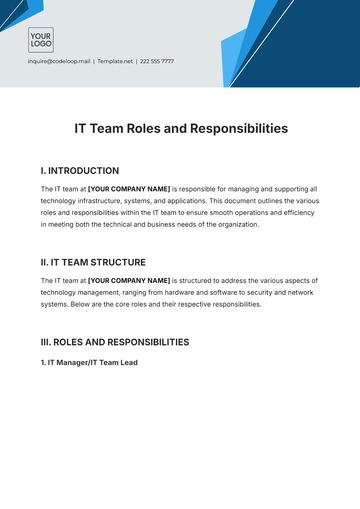Free Nurse Roles and Responsibilities
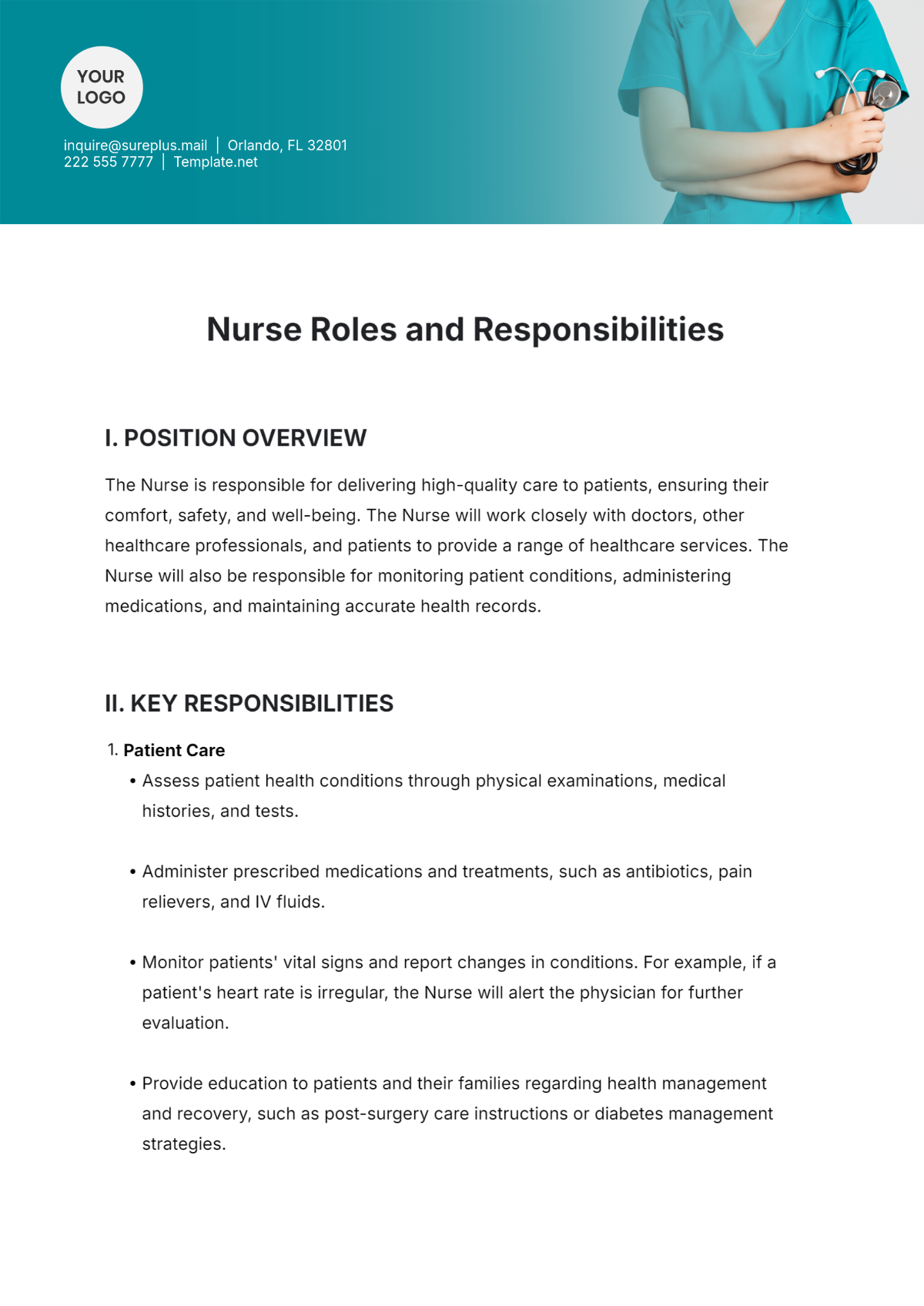
I. POSITION OVERVIEW
The Nurse is responsible for delivering high-quality care to patients, ensuring their comfort, safety, and well-being. The Nurse will work closely with doctors, other healthcare professionals, and patients to provide a range of healthcare services. The Nurse will also be responsible for monitoring patient conditions, administering medications, and maintaining accurate health records.
II. KEY RESPONSIBILITIES
Patient Care
Assess patient health conditions through physical examinations, medical histories, and tests.
Administer prescribed medications and treatments, such as antibiotics, pain relievers, and IV fluids.
Monitor patients' vital signs and report changes in conditions. For example, if a patient's heart rate is irregular, the Nurse will alert the physician for further evaluation.
Provide education to patients and their families regarding health management and recovery, such as post-surgery care instructions or diabetes management strategies.
Documentation and Reporting
Accurately document patient information, assessments, and treatments in the Electronic Health Record (EHR) system.
Maintain and update patient records in accordance with legal and company standards, ensuring all information is up-to-date and accurate.
Report any changes in patient conditions to the appropriate healthcare team members, such as notifying the doctor when a patient's condition worsens or when new symptoms arise.
Collaboration and Communication
Work collaboratively with doctors, physicians, and other medical professionals in a multidisciplinary team to plan and implement patient care.
Communicate effectively with patients, families, and team members. For example, explaining a patient's discharge instructions to a family member in a clear and compassionate manner.
Participate in team meetings to discuss patient care strategies and updates, including bi-weekly care coordination meetings.
Patient Advocacy
Ensure patients' rights and confidentiality are maintained in all interactions.
Advocate for patient needs and preferences in care planning and decisions, such as ensuring a patient’s request for pain relief is addressed promptly and respectfully.
Emergency Response
Respond promptly to medical emergencies, performing necessary life-saving procedures such as CPR, defibrillation, or intubation when required.
Assist in resuscitation efforts and provide immediate care as needed, working alongside the emergency team in critical situations.
Quality Improvement
Participate in quality assurance initiatives to improve healthcare delivery, such as identifying opportunities for reducing medication errors or improving patient discharge processes.
Provide feedback to leadership on areas for improvement, such as recommending new safety protocols or suggesting updates to patient care guidelines.
Training and Mentorship
Assist in the training and orientation of new nursing staff, providing guidance on hospital protocols, patient care practices, and documentation standards.
Serve as a resource for junior nurses, offering advice and support, especially during complex or high-pressure situations, such as emergency room shifts.
III. REQUIRED QUALIFICATIONS
Education: Registered Nurse (RN) degree from an accredited nursing program, such as University of California, Los Angeles, School of Nursing.
Licensing: Current and valid nursing license in the state of California.
Experience: Minimum of 3 years of experience in a healthcare setting, preferably in emergency care or critical care.
Skills:
Strong knowledge of nursing principles and healthcare protocols, including infection control and patient safety standards.
Proficiency in patient care technologies and systems, such as EHR, IV pumps, and diagnostic tools.
Excellent communication and interpersonal skills, including the ability to manage patient expectations and build trust.
Ability to handle sensitive and confidential information with integrity and professionalism.
IV. WORKING ENVIRONMENT
The Nurse will work in [YOUR COMPANY NAME]'s healthcare facilities, including the Emergency Department, ICU, and General Medicine Units. The position requires standing for extended periods, lifting patients, and occasional exposure to hazardous materials or situations. Nurses will be expected to follow all [YOUR COMPANY NAME]'s safety procedures and healthcare regulations, including the use of personal protective equipment (PPE) during certain procedures.
V. PERFORMANCE EXPECTATIONS
Demonstrates compassion, professionalism, and respect for patients and their families, ensuring that patient dignity is maintained at all times.
Maintains accurate, timely, and thorough patient records, complying with both hospital protocols and regulatory standards.
Consistently adheres to all nursing and healthcare standards and procedures, ensuring the highest level of care and safety for all patients.
Fosters teamwork and communication within the healthcare setting, participating actively in patient care rounds and shift handovers.
Actively participates in ongoing professional development and training, including attending quarterly workshops and staying current with new medical research and technology.
VI. COMPENSATION AND BENEFITS
Salary: Competitive salary, with an annual base salary of $75,000 to $95,000, depending on experience and qualifications.
Benefits: Includes comprehensive healthcare coverage (medical, dental, and vision), 401(k) retirement plans, paid time off, and opportunities for professional development and continuing education.
Shift Requirements: Nurses may be required to work nights, weekends, and holidays depending on staffing needs. A typical shift includes 12-hour shifts, rotating between day and night schedules.
- 100% Customizable, free editor
- Access 1 Million+ Templates, photo’s & graphics
- Download or share as a template
- Click and replace photos, graphics, text, backgrounds
- Resize, crop, AI write & more
- Access advanced editor
Clarify the essential duties of healthcare staff with Template.net’s Nurse Roles and Responsibilities Template. Customizable and editable in our AI Editor Tool, this template is designed to provide a detailed outline of nurse responsibilities. Ideal for healthcare facilities, it ensures clear, concise, and professional documentation of nursing roles and tasks.
